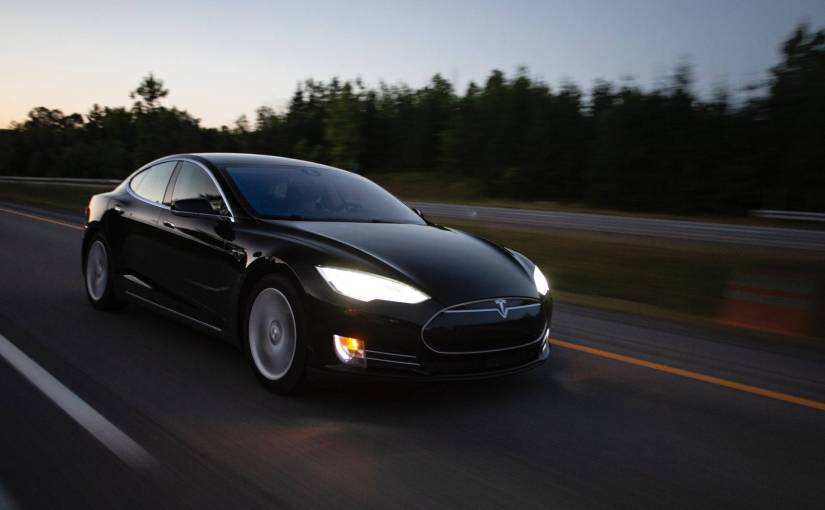As the electric vehicle (EV) industry continues to gain momentum, Tesla, one of the leading manufacturers, has found itself in the midst of controversy. Recent reports suggest that Tesla intentionally overinflated the range estimates of its EVs. This revelation has raised eyebrows and sparked debates among industry experts and consumers. In this article, we will delve into the details of the controversy, exploring the allegations, their potential implications, and the broader context of range estimation in the EV industry.
Remember when Reuters said that Tesla has been inflating the range estimates?
According to a report by Reuters, an anonymous source claims that Tesla has been inflating the range estimates of its electric vehicles since around a decade ago. The source reveals that Tesla implemented algorithms to inflate the projections at a full charge, giving the impression of a longer range.
However, once the vehicles reach a 50 percent state of charge, the range estimates become more realistic, ensuring drivers have a better chance of avoiding being stranded. Furthermore, the source alleges that Tesla maintains a 15-mile buffer, allowing the vehicle to continue driving on battery power even after reaching zero charge. It is suggested that these measures were implemented at the behest of Tesla’s CEO, Elon Musk, to present more favorable range numbers.
In addition to the intentional inflation of range estimates, the Reuters report also claims the existence of a dedicated “Diversion Team” within Tesla. This team’s primary objective is said to be canceling service appointments from customers who express concerns about their vehicles falling short of the misleading range estimates. Each cancellation reportedly saved the company approximately $1,000, as highlighted by a xylophone note played by team members after each successful cancellation. While Tesla has not officially responded to the allegations, such practices, if true, raise ethical concerns regarding the company’s commitment to transparency and customer satisfaction.
Tesla is not the first technology company to face allegations of manipulating product performance metrics. In fact, Apple’s “batterygate” scandal serves as a cautionary tale. In 2017, Apple admitted to intentionally slowing down older iPhone models to preserve battery life and prevent unexpected shutdowns. The company faced significant backlash and legal consequences, eventually agreeing to a settlement of $113 million. Apple’s experience highlights the importance of accurate and transparent performance metrics and the potential legal and reputational risks associated with misleading consumers.
Tesla’s range estimate controversy has not gone unnoticed by regulators worldwide. In the United States, the Environmental Protection Agency (EPA) compelled Tesla to reduce its range estimates for the 2020 model-year vehicles by an average of 3 percent. This regulatory intervention demonstrates the seriousness of the issue and the need for accurate and reliable information for consumers. Furthermore, earlier this year, Tesla was fined $2.2 million in South Korea for failing to deliver the estimated range of its vehicles in cold weather conditions. Such penalties emphasize the importance of adhering to industry standards and providing accurate information to customers.
To put Tesla’s range estimate controversy into perspective, it is essential to understand the broader context of range estimation in the EV industry. It is common for EVs to display larger range numbers when fully charged, which gradually drop as the battery is depleted, especially during highway driving. This phenomenon can be attributed to several factors, including the increased energy consumption of EVs during constant motion and the absence of regenerative braking on highways. In contrast, EVs often achieve longer ranges in city driving, where regenerative braking can provide some return energy.
We can turn to the analysis conducted by EV analytics firm, Recurrent, to evaluate the accuracy of Tesla’s range estimates. Their study compared real-world range data with estimated range figures for various electric vehicles, including the Ford Mustang Mach-E, Chevrolet Bolt, and Hyundai Kona. According to Recurrent’s findings, these vehicles generally had more accurate estimates, with the Hyundai Kona even underestimating its actual range. Such comparisons highlight the importance of manufacturers providing reliable and trustworthy range estimates to empower consumers to make informed decisions.
At the heart of the Tesla range estimate controversy lies the issue of transparency and consumer trust. Accurate and reliable range estimates are crucial for EV owners, as they directly impact their driving experience and ability to plan trips without the fear of running out of charge. By intentionally inflating range projections, Tesla risks eroding consumer trust and damaging its reputation as a leader in the EV industry. Maintaining transparency and providing accurate information should be a priority for all EV manufacturers to build long-term customer loyalty.
The potential consequences of misleading consumers
The allegations surrounding Tesla’s intentional overinflation of range estimates have scrutinized the company. While Tesla has not officially responded to these claims, the controversy highlights the significance of accurate and transparent range information in the EV industry. The example of Apple’s “batterygate” scandal serves as a reminder of the potential consequences of misleading consumers. As regulators and consumers demand greater transparency, it is crucial for EV manufacturers, including Tesla, to prioritize accuracy and build trust through reliable range estimates. Ultimately, a commitment to transparency will benefit consumers and contribute to the EV industry’s sustainable growth.
First reported on The Verge
Frequently Asked Questions
1. What are the allegations against Tesla regarding its range estimates?
An anonymous source claims that Tesla intentionally overinflated the range estimates of its electric vehicles. Tesla is alleged to have implemented algorithms to show longer ranges at a full charge, while the estimates become more realistic as the battery depletes. It is also suggested that Tesla maintains a 15-mile buffer, allowing the vehicle to continue driving on battery power even after reaching zero charge.
2. Why would Tesla inflate its range estimates?
The source alleges that Tesla’s CEO, Elon Musk, wanted to present more favorable range numbers to customers, potentially to boost the perceived performance and attractiveness of the vehicles.
3. How did Tesla handle customer concerns about range discrepancies?
According to the report, Tesla had a dedicated “Diversion Team” whose role was to cancel service appointments from customers who expressed concerns about their vehicles falling short of the misleading range estimates. Each cancellation reportedly saved the company approximately $1,000.
4. How has the EV industry responded to Tesla’s range estimate controversy?
The controversy has attracted regulatory attention. The Environmental Protection Agency (EPA) compelled Tesla to reduce its range estimates for the 2020 model-year vehicles by an average of 3 percent in the United States. Additionally, Tesla faced a fine of $2.2 million in South Korea for failing to deliver the estimated range of its vehicles in cold weather conditions.
5. How does the controversy affect consumer trust and transparency in the EV industry?
The controversy raises concerns about transparency and consumer trust. Accurate and reliable range estimates are essential for EV owners to plan trips and manage their charging needs effectively. By intentionally inflating range projections, Tesla risks eroding consumer trust and damaging its reputation as a leader in the EV industry.
6. How does Tesla’s situation compare to other technology companies’ scandals?
Tesla’s situation is reminiscent of Apple’s “batterygate” scandal in 2017, where Apple admitted to intentionally slowing down older iPhone models. The scandal resulted in legal consequences and a settlement of $113 million. It highlights the importance of providing accurate and transparent information to consumers to avoid potential legal and reputational risks.
7. How does the controversy impact the broader context of range estimation in the EV industry?
The controversy sheds light on the importance of reliable range estimates for EVs. While it is common for EVs to display larger range numbers when fully charged, transparency and accuracy in range estimation are crucial to empower consumers to make informed decisions about their EVs and their driving experiences.
8. What can Tesla and other EV manufacturers do to address the issue?
Tesla and other EV manufacturers should prioritize transparency and accuracy in range estimates. Providing reliable information will help build consumer trust and foster long-term customer loyalty. As regulators and consumers demand greater transparency, EV manufacturers must ensure their range estimates accurately reflect real-world driving conditions.
Featured Image Credit: JP Valery; Unsplash; Thank you!


















